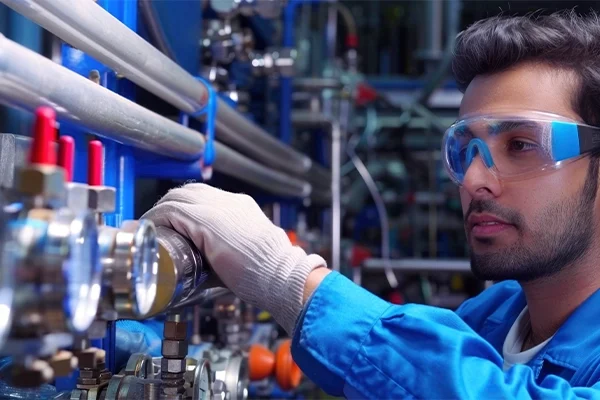The advancement of the naval and industrial sectors depends on components that, although discreet, are essential. You know this: without robust valves and accurate measuring instruments, it would be impossible to guarantee safety, efficiency, and compliance with international regulations. In a market where innovation is advancing at a rapid pace, valves and instrumentation have become strategic components for the present and the future.
Materiales de última generación en valvulería
Los nuevos materiales han revolucionado la fabricación de válvulas. Veréis cómo hoy se utilizan aleaciones resistentes a la corrosión marina, plásticos técnicos de alta durabilidad y recubrimientos especiales que prolongan la vida útil de cada pieza.
Estos avances permiten que las válvulas operen de forma segura en entornos de alta presión, temperaturas extremas o exposición constante al agua salada, condiciones donde antes el desgaste era un problema recurrente.
Instrumentación digital para mayor precisión
La era de las lecturas analógicas está dando paso a la digitalización. Los modernos sistemas de instrumentación ofrecen datos en tiempo real, accesibles desde paneles de control centralizados o incluso desde dispositivos móviles.
Vosotros que trabajáis en operaciones sabéis que esta precisión reduce márgenes de error y agiliza la toma de decisiones, especialmente en situaciones críticas donde cada segundo cuenta.
Smart valves: automation as an advantage
Beyond simply opening or closing a flow, smart valves allow flow rates to be regulated automatically and adapt to variations in pressure or temperature. You will see that these systems, connected to the Internet of Things (IoT), are capable of sending alerts when they detect anomalies, facilitating much more effective predictive maintenance.
This ability to anticipate not only increases safety, but also reduces costs associated with unexpected repairs and prolonged downtime.
Calibration challenges in instrumentation
For a system to function accurately, it is not enough to install advanced instruments: they must be calibrated periodically. You know this, because even a slight deviation in pressure or temperature measurement can disrupt an entire industrial or naval process.
Proper calibration ensures reliability and compliance with international standards, which is essential in sectors where safety and efficiency are a priority.
Sustainability as a driver of innovation
Regulatory and social pressure towards sustainability is driving significant changes in valves and instrumentation. Today, equipment must not only be efficient, but also environmentally friendly.
You will see more and more valves designed to reduce leaks and energy losses, as well as instruments capable of optimizing consumption. These advances allow companies to adapt to environmental regulations and, at the same time, improve their competitiveness in a global market.
Conclusion
Valves and instrumentation are the hidden soul of modern industry. Those of you who work with them know that behind every valve and every sensor lies the safety of crews, the efficiency of processes, and the sustainability of operations.
Investing in innovation, state-of-the-art materials, and intelligent systems is the best way to be prepared for the challenges ahead. Because in an ever-changing industry, only precision and reliability make the difference.

